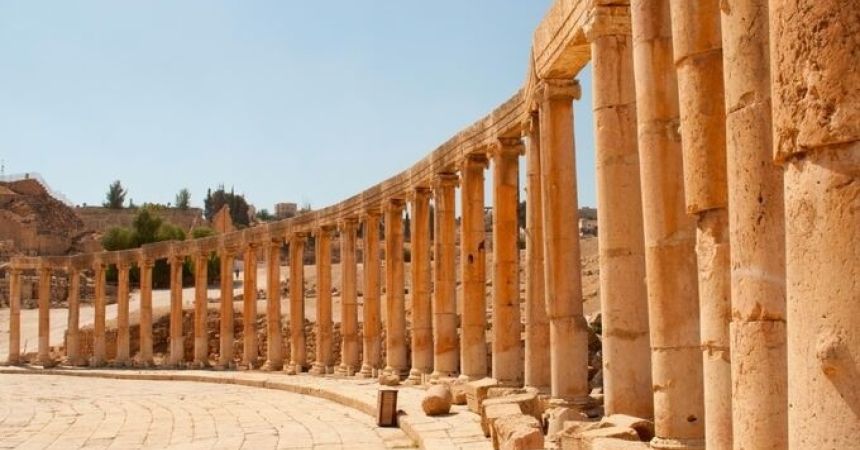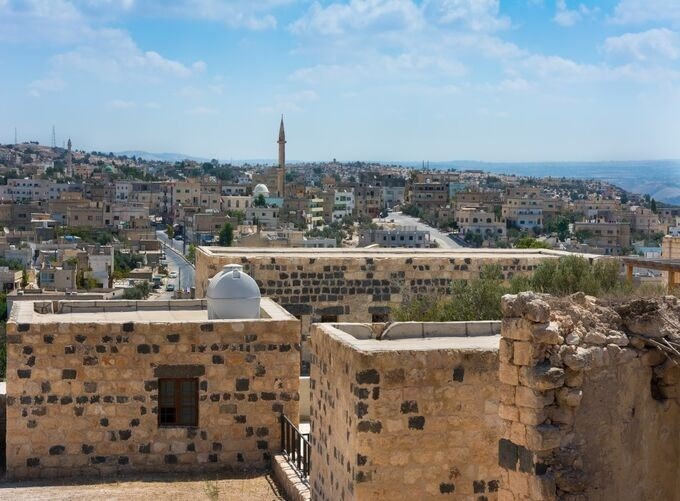
Jordan Travel Tips: Your Ultimate Guide
Jordan, a land of ancient history, stunning landscapes, and vibrant culture, offers travelers an experience like no other. From the mesmerizing ruins of Petra to the serene waters of the Dead Sea and the expansive beauty of Wadi Rum, Jordan is a destination that promises adventure, relaxation, and cultural immersion. To ensure your trip is as enjoyable and hassle-free as possible, here’s an extensive guide packed with travel tips to help you navigate and make the most of your time in Jordan.
Understanding Jordan
Geography and Climate
Jordan is located in the Middle East, bordered by Israel and Palestine to the west, Syria to the north, Iraq to the northeast, and Saudi Arabia to the east and south. The country is divided into various regions, each offering distinct landscapes and experiences:
Desert Regions: Including Wadi Rum and the eastern part of the country, characterized by vast sand dunes and rocky formations.
Historical Sites: Petra, Jerash, and other ancient ruins offer a glimpse into Jordan’s rich past.
Coastal Areas: Aqaba, located on the Red Sea, is known for its beaches and diving spots.
Highland Areas: Including Amman, the capital, and other northern regions with a more temperate climate.
Jordan’s climate varies significantly:
Desert Climate: Hot, dry summers with temperatures soaring above 100°F (38°C) and cooler nights. Winters are milder but can be quite chilly.
Mediterranean Climate: Coastal areas like Aqaba experience hot, dry summers and mild winters.
Highland Climate: Temperatures can be cooler with moderate rainfall, especially from November to March.
Cultural Context of Jordan
Jordan is a predominantly Muslim country with rich cultural traditions. While it is relatively liberal compared to some of its neighbors, it’s important to respect local customs and dress modestly, particularly in religious or rural areas.
Preparing for Your Trip
Visas and Entry Requirements
Visa: Most travelers need a visa to enter Jordan, which can be obtained upon arrival at the airport or online through the eVisa system. Ensure your passport is valid for at least six months beyond your departure date from Jordan.
Visa Fees: Check current visa fees, which can vary depending on your nationality and the length of stay.
Travel Insurance: It’s advisable to have travel insurance covering health, accidents, and theft.
Packing Essentials
Clothing
Modest Attire: Jordan is conservative, so pack clothing that covers your shoulders and knees. For women, loose-fitting garments are preferred. Men should avoid wearing shorts in conservative areas.
Comfortable Shoes: Essential for exploring Petra and Wadi Rum. Sturdy walking shoes or hiking boots are recommended.
Sun Protection: Pack a wide-brimmed hat, sunglasses, and sunscreen to protect yourself from the sun, especially in the desert.
Layered Clothing: Bring layers for varying temperatures, particularly if visiting different regions.
Gear and Accessories
Travel Adapter: Jordan uses Type C, D, and G plugs with a standard voltage of 230V. Bring a suitable adapter for your electronics.
Reusable Water Bottle: Stay hydrated in the heat and reduce plastic waste.
Camera and Binoculars: Capture the stunning landscapes and historical sites.
Daypack: Useful for carrying essentials during day trips.
Cultural Considerations
Scarves and Shawls: Useful for covering your head or shoulders when visiting religious sites or conservative areas.
Modest Swimwear: If visiting private beaches or resorts, modest swimwear is recommended.
Navigating Jordan
Getting Around
Public Transportation: Jordan has a network of buses and taxis. While public buses are available, they may not be the most comfortable or reliable for tourists.
Car Rentals: Renting a car offers flexibility. Ensure you have an international driving permit and familiarize yourself with local driving laws.
Guided Tours: Consider booking guided tours in Jordan for historical sites and desert adventures to enhance your experience and gain deeper insights.
Local Currency and Payments
Currency: The Jordanian Dinar (JOD) is the official currency. Familiarize yourself with the exchange rates and carry some cash for smaller establishments.
Credit Cards: Widely accepted in hotels, restaurants, and larger shops. However, carry cash for small vendors and rural areas.
ATMs: Available in cities and tourist areas. Check with your bank about international transaction fees.
Top Destinations and Activities
Petra
Entry Requirements: The Petra Archaeological Site requires an entrance fee. Consider purchasing a Jordan Pass, which includes entry to Petra and other sites.
Exploration Tips: Wear comfortable shoes for the extensive walking and hiking. Start early to avoid the heat and crowds.
Wadi Rum
Activities: Known for its stunning desert landscapes. Enjoy jeep tours, camel rides, and stargazing. Book a camp to experience Bedouin hospitality.
Packing: Bring sun protection, water, and a scarf to protect against sand and dust.
Dead Sea
Floating: Experience floating in the mineral-rich waters. Avoid getting the water in your eyes and use the provided mud for skin benefits.
Swimwear: While swimwear is acceptable at private resorts, be modest if visiting public areas.
Jerash
Historical Ruins: Explore the well-preserved Roman ruins. Wear comfortable shoes and carry water for hydration.

Amman
City Exploration: Visit historical sites like the Roman Theater, the Citadel, and vibrant markets. Dress modestly and be aware of local customs.
Aqaba
Beaches and Diving: Enjoy the Red Sea's beaches and excellent diving spots. Pack swimwear, snorkeling gear, and sun protection.
Food and Dining in Jordan
Local Cuisine
Traditional Dishes: Sample Jordanian dishes like mansaf (lamb with rice and yogurt), falafel, hummus, and tabbouleh. Street food is generally safe but choose vendors with high turnover.
Dining Etiquette: Use your right hand for eating and avoid public displays of affection. Respect local customs and traditions.
Drinking Water
Bottled Water: Tap water is generally safe in urban areas but bottled water is recommended for drinking and brushing teeth, especially in rural regions.
Cultural Etiquette and Customs
Respectful Behavior
Greetings: A handshake is common, though it may be less frequent between men and women. A slight bow of the head is a respectful gesture.
Photography: Always ask for permission before photographing people, especially in rural or conservative areas. Respect “no” and avoid taking pictures in restricted areas.
Dress Code
Religious Sites: Dress modestly when visiting mosques or religious sites. Women should cover their heads, and both men and women should wear clothing that covers their arms and legs.
Health and Safety
Emergency Numbers
Emergency Services: Dial 911 for emergencies. Keep local contact numbers handy, such as your hotel and nearest embassy or consulate.
Personal Safety
Avoid Risky Areas: Stay informed about current safety advisories. Avoid areas with travel warnings and exercise caution in crowded places.
Communication
Language
Arabic: The official language is Arabic. English is widely spoken in tourist areas and by younger Jordanians.
SIM Cards and Internet
SIM Cards: Purchase a local SIM card for affordable internet and communication. Many providers offer tourist packages with data and calls.
Wi-Fi: Available in most hotels, cafes, and public areas.
Shopping and Souvenirs
Local Markets
Souqs: Explore traditional markets for souvenirs like spices, pottery, and handmade crafts. Bargaining is common, so don’t hesitate to negotiate prices.
Shopping Tips
Local Crafts: Look for unique items such as Jordanian pottery, Bedouin textiles, and traditional jewelry.
Tipping and Gratuities
Tipping: Tipping is customary in Jordan. In restaurants, a 10-15% tip is appreciated. For guides and drivers, consider tipping based on the level of service provided.
Environmental Responsibility
Sustainable Tourism
Respect Nature: Follow marked trails, avoid littering, and respect wildlife. Jordan’s natural landscapes are fragile and should be preserved for future generations.
Water Conservation
Use Water Wisely: Jordan is a water-scarce country. Use water resources sparingly and follow any local guidelines for conservation.
Jordan: A Journey Through Timeless Beauty
Jordan is a destination that combines ancient history, natural beauty, and warm hospitality. With careful planning and preparation, you can make the most of your trip and create lasting memories. By following these travel tips, you’ll be well-equipped to navigate Jordan’s diverse landscapes, respect its cultural norms, and fully immerse yourself in all that this remarkable country has to offer. Enjoy your journey through Jordan, a land of wonder and enchantment!



